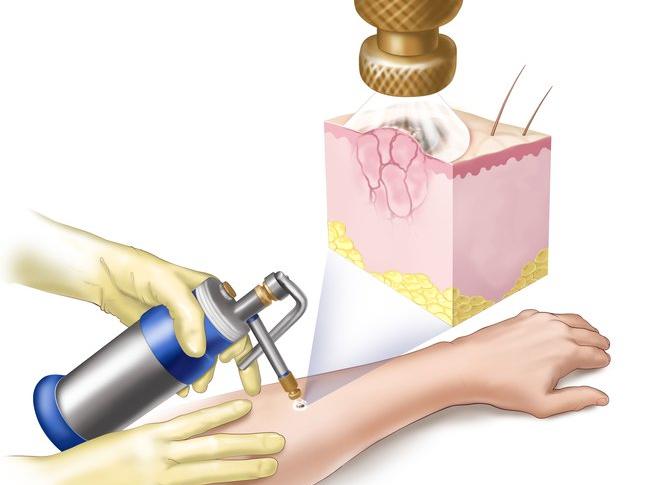As part of palliative care for a cancer patient, Czech experts froze part of the painful skin tumor on his back. However, within a few months, they found that the patient had lost all metastases and had completely recovered from the cancer.
Standard procedures did not help
Doctors first treated the patient with standard procedures – radiotherapy and immunotherapeutic drugs, which help trigger the body’s immune response to cancer cells. “Despite this treatment, the patient developed a huge tumor progression, metastatic lesions on the back, liver and underarm nodes,” said Ondřej Kodet from the Department of Dermatovenerology of the 1st Faculty of Medicine at Charles University.
At that time, the doctors could no longer offer the patient any treatment that would lead to the regression of the tumors and focused on palliative care. Its main aim is to relieve pain and maintain a good quality of life for patients suffering from incurable diseases.
The patient therefore decided to cut off part of the painful growth on the back and freeze the bottom of the tumor with liquid nitrogen at -196 degrees Celsius. “In malignant melanoma, cryosurgery is an attempt to relieve the patient of the difficulties of palliative care. After cryotherapy, a reduction in tumor mass can be expected, but it is not common for this to trigger an overall (immune) response outside the low temperature site,” he explained. Kodet’s colleague Lukáš Lacina.

Image: Terese Winslow
Abscopal effect
The doctors were therefore surprised when, a month after the tumor froze, most of the cancer cells on the patient’s back began to disappear, even in places that were not affected by the cold. Therefore, they repeated the treatment once more and after two months at another examination, they found that both liver and armpit lymph node metastases had disappeared.
According to experts, this was possible thanks to the so-called Abscopal effect. This is a hypothesis that after local therapy of one tumor, other tumors begin to shrink, thanks to the awakening of the systemic immune response. “The aboscopic effect is relatively rare in the treatment of cancer and its mechanism is not fully elucidated. It is thought that the breakdown of a large number of tumor cells releases tumor neoantigens, which can stimulate the immune system. treatment sites, “Kodet said.
Experts add that while this phenomenon has already been documented in radiotherapy, in conjunction with cryotherapy, this is the first documented case of this mechanism in clinical practice. According to the Prague Medical Faculty, the systemic reaction probably occurred due to a combination of drugs and tumor freezing. According to doctors, this case suggests treatment options, but experts are careful. “Unfortunately, there are currently no known parameters, so-called biomarkers, according to which it would be possible to estimate in advance which of the patients responds so favorably to cryotherapy combined with systemic oncological immunotherapy. It would certainly be too optimistic to expect such an effect in all patients the benefit could be great, “Lacina said.




Itís difficult to find experienced people about this topic, however, you seem like you know what youíre talking about! Thanks